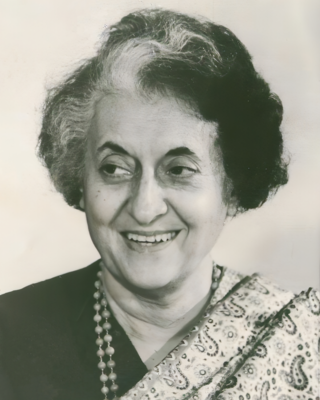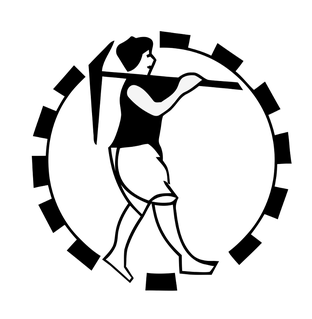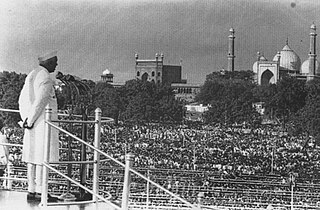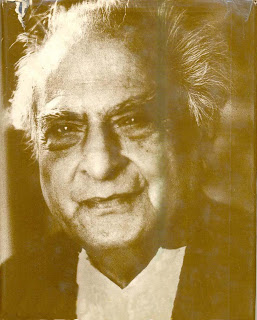
Indira Priyadarshini Gandhi was an Indian politician and stateswoman who served as the Prime Minister of India from 1966 to 1977 and again from 1980 until her assassination in 1984. She was India's first and, to date, only female prime minister, and a central figure in Indian politics as the leader of the Indian National Congress (INC). She was the daughter of Jawaharlal Nehru, the first prime minister of India, and the mother of Rajiv Gandhi, who succeeded her in office as the country's sixth prime minister. Gandhi's cumulative tenure of 15 years and 350 days makes her the second-longest-serving Indian prime minister after her father. Henry Kissinger described her as an "Iron Lady", a nickname that became associated with her tough personality.
Events in the year 1984 in the Republic of India.
Events in the year 1975 in the Republic of India.
Events in the year 1967 in the Republic of India.
Events in the year 1977 in the Republic of India.
Events in the year 1949 in India.

The Janata Party is an unrecognised political party in India. It was founded as an amalgam of Indian political parties opposed to the Emergency that was imposed between 1975 and 1977 by Prime Minister Indira Gandhi of the Indian National Congress. In the 1977 general election, the party defeated the Congress and Janata leader Morarji Desai became the first non-Congress prime minister in independent modern India's history.
The events in India during 1970
Events in the year 1950 in the Republic of India.
Events in the year 1972 in the Republic of India.
These are the events that happened during 1973 in the Republic of India:
Events in the year 1982 in the Republic of India.
Events in the year 1959 in the Republic of India.
Events in the year 1976 in the Republic of India.
Events in the year 1981 in the Republic of India.

The history of independent India or history of Republic of India began when the country became an independent sovereign state within the British Commonwealth on 15 August 1947. Direct administration by the British, which began in 1858, affected a political and economic unification of the subcontinent. When British rule came to an end in 1947, the subcontinent was partitioned along religious lines into two separate countries—India, with a majority of Hindus, and Pakistan, with a majority of Muslims. Concurrently the Muslim-majority northwest and east of British India was separated into the Dominion of Pakistan, by the Partition of India. The partition led to a population transfer of more than 10 million people between India and Pakistan and the death of about one million people. Indian National Congress leader Jawaharlal Nehru became the first Prime Minister of India, but the leader most associated with the independence struggle, Mahatma Gandhi, accepted no office. The constitution adopted in 1950 made India a democratic republic with Westminster style parliamentary system of government, both at federal and state level respectively. The democracy has been sustained since then. India's sustained democratic freedoms are unique among the world's newly independent states.
Events in the year 1968 in the Federal Republic of India.

Parmeshwar Narayan Haksar was an Indian bureaucrat and diplomat, best known for his two-year stint as Prime Minister Indira Gandhi's principal secretary (1971–73). In that role, Haksar was the chief strategist and policy adviser behind Gandhi's early years and her establishment of strong authority in the 1970s. After this he was appointed deputy chairman of the Planning Commission and then the first-ever chancellor of New Delhi's Jawaharlal Nehru University.
Events in the year 1961 in the Republic of India.
Events in the year 1969 in the Republic of India.







